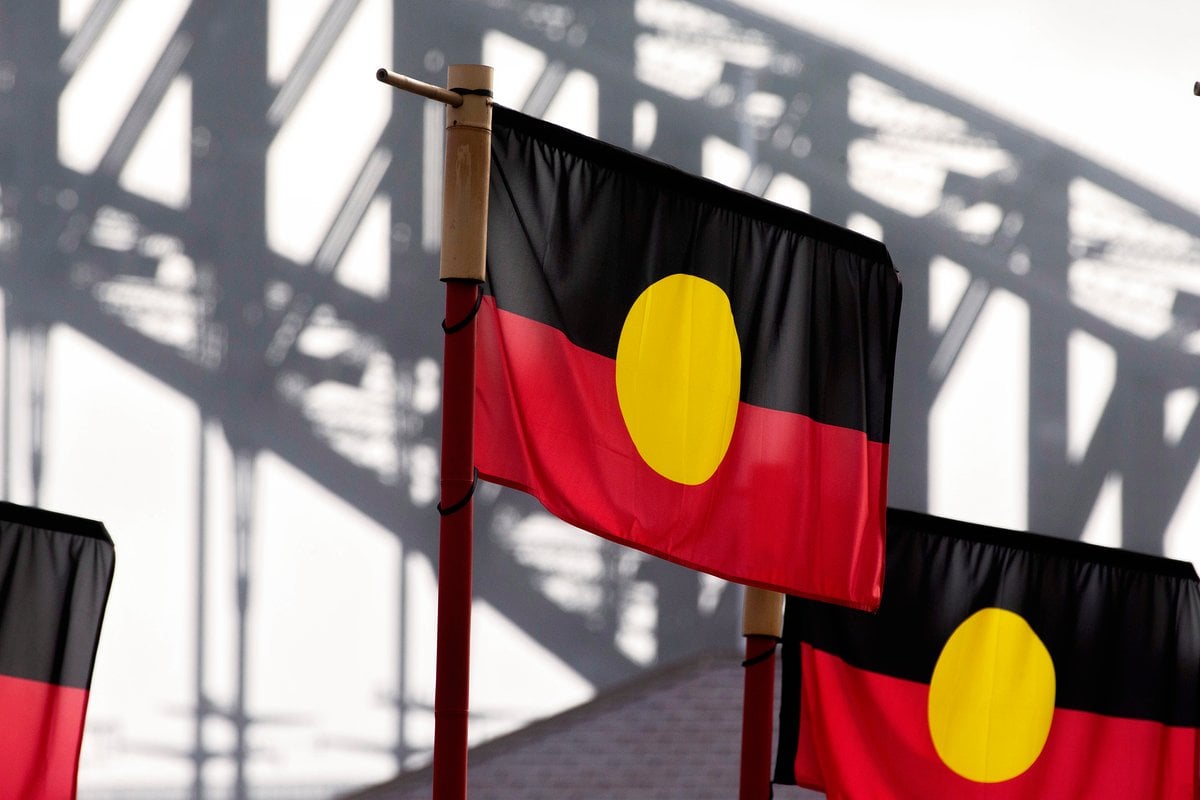
In 2021, Mamamia will only refer to January 26 by its date, to acknowledge that it is not a day of celebration for all Australians. If you want to be an ally this January 26, we urge you to sign this letter below to your MP about the Uluru Statement from the Heart – which calls for constitutional change and structural reform that recognises the sacred, ancient spiritual link Aboriginal and Torres Strait Islander people have to their land.
Every year, as January 26 approaches, Australians have the same debate: is this date, the anniversary of an invasion, the best date to celebrate our national identity?
For many, the answer is no. January 26 marks the day the Union Jack was raised at Port Jackson on the land of the Eora clans, signifying the beginning of centuries of dispossession that permanently destroyed elements of Indigenous culture. It only began to be a national public holiday in 1994 - making it a mere 27-year-old tradition.
Now about 28 per cent of Australians want the date to be moved, according to a new survey by Nine News and Sydney Morning Herald.
Watch: What January 26 means to different Australians. Post continues below.
If the date were to be moved, though, what date would be better?
Mamamia's daily news podcast 'The Quicky' asked three First Nations women on what day we should actually celebrate Australia instead.
1. Narelda Jacobs.
Narelda Jacobs is a proud Whadjuk Noongar woman and 10 News First presenter who says there are several options.

Top Comments